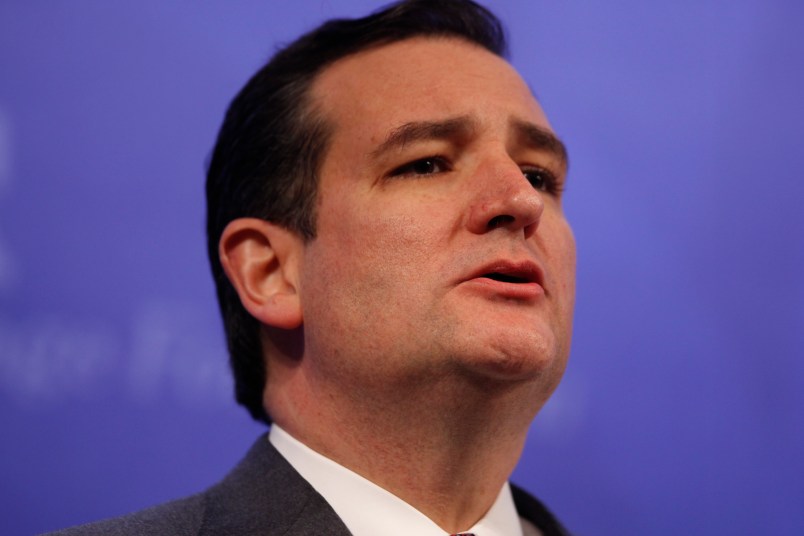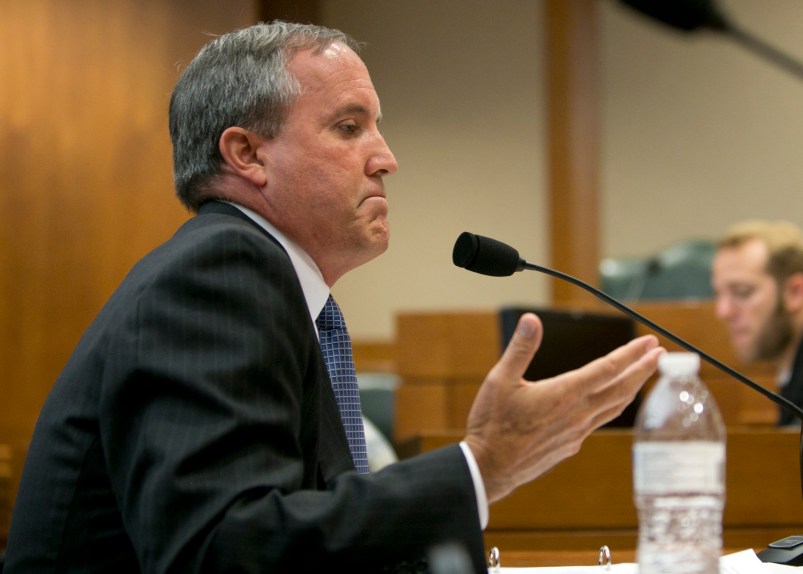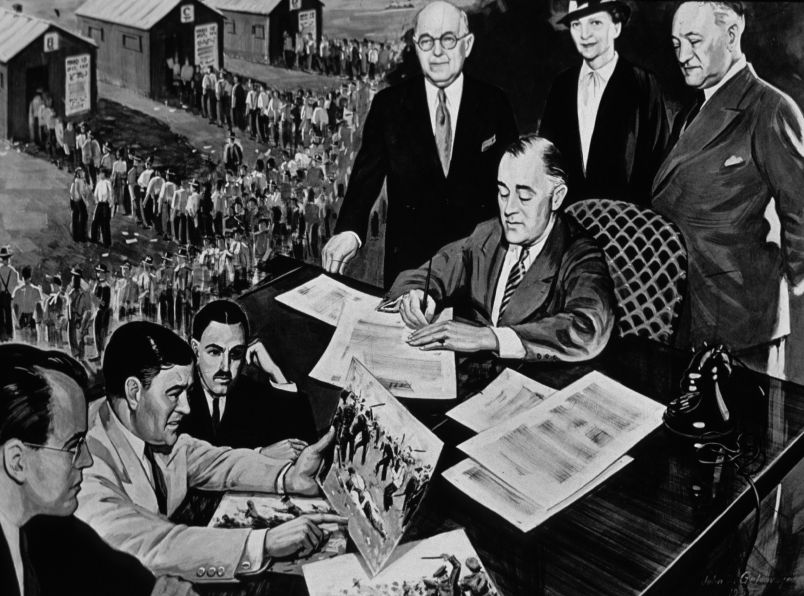Overshadowed by both international and domestic developments and beset by terrible weather, Texas held the first major state primaries of the 2014 cycle yesterday. In the absence of a lot of red-hot congressional contests, the Lone Star event will mostly be interpreted as a barometer of this or that national trend, with varying degrees of accuracy.
In the one much-watched Democratic primary, progressive freshman U.S. Rep. Marc Veasey of Ft. Worth easily defeated self-funder Tom Sanchez in a contest that was expected to be decided more by ethnic voting patterns (Veasey is African-American, Sanchez is Hispanic) and geography (Veasey’s base is in Ft. Worth but a lot of voters are in Dallas) than ideology. President Obama recently endorsed Veasey, so his win will be greeted happily at both ends of Pennsylvania Avenue. Democrats are less pleased with a runoff in the U.S. Senate race that will include LaRouche candidate Kesha Rogers, though she finished a poor second to regular Democrat Dan Alameel. Perhaps worse yet, the high-profile Agriculture Commissioner contest will pit a total unknown, farmer Jim Hogan, against comedian-musician-novelist-gadfly Kinky Friedman, hardly a regular Democrat, who is running on a quasi-libertarian pot legalization platform.
Among Republicans, the story we are hearing from most national observers (such as this headline from the New York Times today: “Texas GOP Beats Back Challengers From Right”) was about the dog that did not bark: tea party challengers to Sen. John Cornyn and Rep. Pete Sessions failed miserably, a result that will undoubtedly be used to reinforce an ongoing national meme that the Tea Party is dead or dying and the GOP establishment is riding high.
But if you look beyond the congressional races, that’s not necessarily the right conclusion to derive from the Texas GOP primary results.
In the Lieutenant Governor’s race, incumbent David Dewhurst — the same guy Ted Cruz upset in the 2012 U.S. Senate primary — ran a poor second last night, and will face fiery right-wing state senator Dan Patrick in a May runoff Dewhurst seems doomed to lose. In the primary to replace Attorney General Greg Abbott, the GOP gubernatorial candidate, the first place finisher was state senator Ken Paxton, whose main campaign credential was his coziness with Cruz. In the Ag Commissioner’s primary, the top finisher was former state legislator Sid Miller, whose campaign co-chairman and treasurer is (even after the neanderthal rocker’s “Obama is a subhuman mongrel” comment) none other than Ted Nugent. On a night when for the first time in memory, all but one Texas statewide office was open, the tea folk did quite well, and could do just as well in what should be an extremely low turnout runoff in May.
But beyond the tea party-versus-establishment dynamics, this primary reflected the full absorption of “constitutional conservative” rhetoric by candidates previously associated with country-club Republicanism. John Cornyn has spent much of the last year snuggling up to his junior colleague Cruz seeking cover. Greg Abbott (“typically described as a more conservative version of [Rick] Perry,” says one Texas observer) is running a campaign that has been teetering on the edge of a vengeful culture-war assault on Democratic rival Wendy Davis. And most interesting at all, the scion of that great weathervane of Republican ideological change, the Bush family, is tacking hard right as well: George P. Bush, the half-Hispanic son of Jeb, is running for the statewide position of Land Commissioner after an extended effort to court the tea folk and identify himself with Cruz (notably endorsing the “defund Obamacare” stunt that led to last year’s government shutdown).
The situation in Texas reflects a more general dynamic in the GOP, dating back at least to the concessions Mitt Romney made to “constitutional conservative” orthodoxy (from signing onto the radical “Cut, Cap, Balance” budget pledge, to taking a hard line on immigration, to promising a full repeal of the Affordable Care Act) in order to secure the Republican presidential nomination over weak and divided “true conservative” opposition. The more the tea party movement (itself mainly a continuation of the “movement conservative” faction that has been struggling for preeminence since its breakthrough in the Goldwater campaign of 1964) influences mainstream GOP policy positions and rhetoric, the less it may succeed in intraparty contests with an “establishment” that has largely coopted it, and whose differences are mainly over strategy and tactics rather than core ideology.
In Texas the high-profile GOP candidates who allegedly smote “the right” are hard to distinguish from the insurgents these days. And down-ballot, the real fire-eaters who think the ideological counter-revolution has just begun did quite well.
Ed Kilgore is the principal blogger for Washington Monthly’s Political Animal blog, Managing Editor of The Democratic Strategist, and a Senior Fellow at theProgressive Policy Institute. Earlier he worked for three governors and a U.S. Senator. He can be followed on Twitter at @ed_kilgore.









